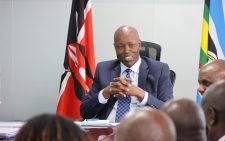KCSE malpractices – Episode 4: Teachers’ role

Secondary school teachers play a central role in orchestrating KCSE exam malpractices. In episodes one, two and three of this investigative series, the broader plan behind the malpractices, the pre-exam phase, and what typically occurs during the exam period were uncovered. In episode four, how teachers facilitate and participate in this widespread fraud, is delved into deeper.
Teachers actively generate answers for students, effectively becoming answer mills. Subject teachers, particularly in critical subjects like Mathematics and Sciences, often obtain leaked exam papers before the tests begin.
Armed with this information, they retreat to staff rooms, dormitories, or secluded areas within or outside the school compound to solve the questions. These answers then find their way into examination rooms through compromised invigilators, supervisors, or even security officers. In extreme cases, teachers have been reported to go as far as writing entire exam scripts for selected students whose parents or school administrators have paid hefty bribes to guarantee high scores.
The KCSE exam period is not just a time of intense academic pressure but also a highly lucrative season for teachers involved in this illicit practice. These teachers act as conduits for exam leaks from KNEC containers, often facilitated by exam officials entrusted with the safekeeping of examination materials.
Unlike school principals, who are more easily identifiable, teachers can move around discreetly with minimal suspicion. Equipped with smartphones and through well-coordinated WhatsApp groups and other digital networks, they facilitate the leakage and distribution of exam content with military precision.
Their roles and duties are usually pre-arranged, with many acting as proxies for school principals. Additionally, teachers often serve as go-betweens for invigilators and supervisors, ensuring that any suspicions from non-participating officials are skillfully avoided.
Principals invest heavily in this undertaking.
Bribes typically range from Sh1,500 to Sh2,000 per day for teachers who facilitate the scheme. Those who manage to obtain leaked exams through their networks or other means can earn between Sh5,000 and Sh10,000 per subject. Mathematics and Science papers fetch more compared with social sciences. Principals, commonly referred to as centre managers, often collaborate with local TSC officials to revoke the postings of invigilators and supervisors who refuse to cooperate.
It is a delicate game, as principals who either resist involvement in malpractice or fail to meet the financial demands of this corrupt network may find themselves targeted. False accusations of cheating are sometimes fabricated against them as a form of blackmail or punishment.
The KCSE examination period serves as a financial windfall for teachers engaged in these unethical practices, evident in the lively local pub scenes each evening. Payments are typically made via mobile money transfers, and as the clock strikes 6:30pm, the characteristic beeping of money transaction messages fills the air. One teacher after the other would announce ‘yangu imeingia’ (mine has come through), referring to the day’s honorarium.
Teachers, who are ordinarily cautious spenders, suddenly become uncharacteristically generous, celebrating their earnings with rounds of drinks. After a long day of facilitating malpractices, many teachers indulge in these rewards, further entrenching the culture of corruption within the education system.
Beyond influencing the examination process, there have been cases where teachers tamper with examination scripts before they are officially handed over to KNEC officials. In cases where students have performed poorly, teachers fill in blank spaces or even rewrite entire sections to ensure better results.
These adjustments are often made with the assistance of exam officials and security personnel, who allow scripts to be taken to staff rooms or private offices before submission. Such manipulations not only compromise the credibility of the KCSE examination process but also reveal the depth of corruption entrenched in the education sector.
— The writer is a Professor of chemistry at the University of Eldoret, a former Vice-Chancellor, and a Quality Assurance Expert














